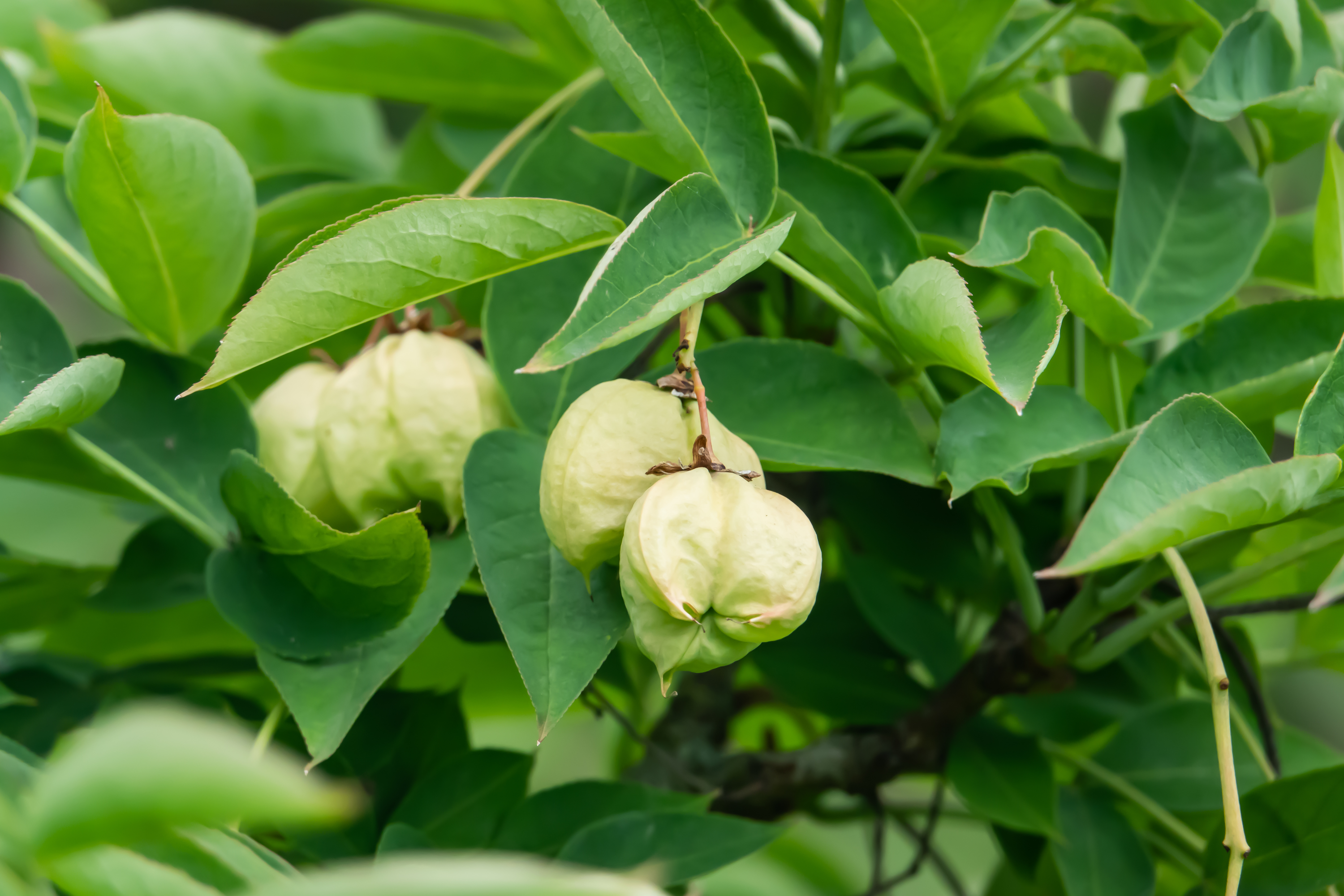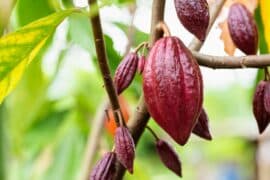Wild coffee
(Diospyros whyteana)

Description
Diospyros whyteana (also known as the bladdernut, swartbas, wild coffee or umTenatane) is a small African tree of the ebony family. Bearing dark green, strikingly glossy leaves and creamy fragrant flowers, it is increasingly cultivated in Southern African gardens as an attractive and strong ornamental tree. It can attain a height of up to 6 m. The Bladdernut has a wide distribution, occurring from Cape Town in the south, to as far north as Ethiopia. It naturally grows in Afro-montane forest and on rocky mountain slopes. This decorative little tree is excellent for gardens, with its tidy shape, dark glossy leaves and small red fruits, which start developing from about August to November. If planted alone it makes a good "accent plant" (especially in small gardens). However, it also makes a very good hedge, as it has lush, dense foliage and responds particularly well to clipping. Lastly, it can be grown as a container plant (It is even used as a bonsai specimen). Diospyros can be grown in the sun as well as in the shade, although it grows taller and thinner in the shade. Once established, it is also relatively drought-resistant. It has sweetly scented flowers, and attracts birds to the garden. Diospyros is dioecious (separate male and female trees), but can easily be propagated from seed, which should first be scratched/scarified before planting. The seed typically germinates in several weeks, and the juvenile trees are relatively slow growing. iospyros is a genus of over 700 species of deciduous and evergreen trees and shrubs. The majority are native to the tropics, with only a few species extending into temperate regions. Individual species valued for their hard, heavy, dark timber, are commonly known as ebony trees, while others are valued for their fruit and known as persimmon trees. Some are useful as ornamentals and many are of local ecological importance. Species of this genus are generally dioecious, with separate male and female plants. The generic name Diospyros comes from a Latin name for the Caucasian persimmon (D. lotus), derived from the Greek: dióspyros, from diós and pyrós. The Greek name literally means "Zeus's wheat" but more generally intends "divine food" or "divine fruit". Muddled translations sometimes give rise to curious and inappropriate interpretations such as "God's pear" and "Jove's fire".
Taxonomic tree:







